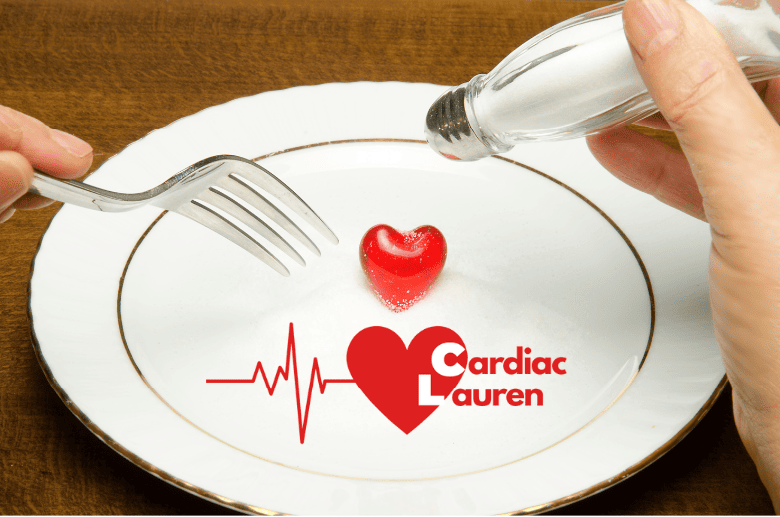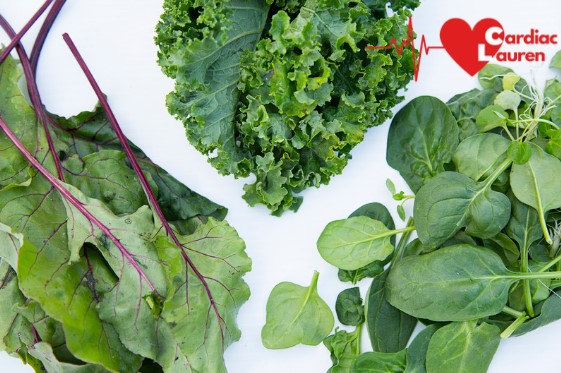Table of Contents
Heart Failure & Diet Considerations: The Whole Picture
Heart failure and diet: I watched a webinar hosted by the BACPR where Helena Davies, a cardiovascular dietitian from Imperial College Healthcare NHS Trust, gave a presentation about the latest information regarding nutrition for people with heart failure.
This is a round-up of the information that we were given. Please note that this is not my research.

Sadly, there is minimal evidence to provide and update the NHS guidance, but having 1-2-1 appointments is key. At these regular appointments, patients can have detailed discussions about their heart failure diagnosis and symptoms, their activity and exercise, they can be weighed, have blood tests, and have a detailed analysis of their diet and which changes they must make, those that would be beneficial to change, and those that they should continue with.
Type of diet
There is no clear diet that is recommended for heart failure, so the main guidance is to follow a cardioprotective diet, as many heart failure patients also have coronary heart disease, or may go on to develop it. The examples are the Mediterranean diet and DASH diet. These focus on plant-based foods, e.g. fruit & veg, wholegrains, legumes and replacing saturated fats with mono- or polyunsaturated fats.
Sodium (salt)
There are no recommendations on reducing your salt intake. The NICE guidelines are not more than 6g a day. Some people with heart failure do not have enough salt in their diet, so they may be advised to increase their intake.
We know that increased levels of salt increase your risk of hypertension (high blood pressure), which in turn increases your risk of coronary heart disease and stroke. Therefore, eating no more than 6g is fine.
Anyone with heart failure must avoid salt alternatives, especially if they consist of potassium. Changing your diet, e.g. fewer processed foods, will normally be enough.
I have a blog about salt here.

Potassium
Some heart failure medications can cause potassium levels to increase; therefore, heart failure patients may be advised to reduce their potassium intake. This will have been advised after having a blood test. Having high potassium can cause renal (kidney) issues, so this will be monitored regularly.
There is a new medication that can help reduce potassium in the body, but most people will need to adapt their diet first, as many vegetables contain potassium. Finding the cause of the high potassium levels is better than treating the symptoms.
Fluid
Everyone should aim to drink 1.6-2 litres of fluid daily. You only need to reduce your fluid intake if you have been advised to.
Weighing yourself daily is important so you can pick up on fluid retention, which is where you may gain 1-2 kgs over a 2-3 day period. This may result in you being advised to reduce your fluid intake alongside taking medication.
Be aware that dehydration will bring on heart failure symptoms, so you may be advised to drink more.
Omega-3
The best way to get omega-3 is via your diet – eating two portions of fish a week, with one being oily. Advice needs to be on a 1-2-1 basis.
There is currently no guidance about taking omega-3 supplements (it seems to fluctuate between taking them and not), but we do know one side effect is atrial fibrillation (please note that there is not enough research to know if these people were already at risk of developing AF).
Iron
Heart failure patients often have a reduced appetite, which in turn results in low iron levels. It could also be that they have impaired iron absorption.
Having an IV iron infusion is the recommended way to increase your iron levels. Taking oral supplements often causes gastric irritation, and trying to increase iron in your diet does not always improve iron levels

Herbal options / Multi-vitamins
There is very little evidence that herbal tablets are beneficial, and some can interfere with heart failure medication, e.g. turmeric and warfarin.
Vitamin D is the only supplement that is recommended for patients in the UK.
Behaviour change is more important than taking multivitamins, e.g. increasing dietary fibre and eating the right foods.
Speak to your heart failure prescribing nurses or pharmacist before trying anything to ensure that you actually need them (they will do a blood test) and which ones you should try.
Not all alternative medications are regulated, so you may not be receiving the correct dose or know what you are actually purchasing.
Malnutrition
As heart failure can cause a lack of appetite, malnutrition is common in these patients. There is a screening tool that the heart failure team can use (MUST screening tool), and with dietary advice, they can help improve the patient’s condition.
Sarcopenia (loss of muscle) is also high in heart failure patients. Activity, exercise and dietary advice will be given on an individual basis.
Cardiac cachexia is also linked to malnutrition and sarcopenia.
A risk factor for coronary heart disease is obesity, and not all heart failure patients have CHD. Therefore, being a healthier weight will reduce this risk.
Weight Management
Activity, exercise and dietary advice on an individual basis is advised to help increase muscle mass, as well as ensure that the patient eats the correct amount of micro- and macro-nutrients when losing weight.
Physical activity and exercise
Increasing muscle mass is one of the best ways for heart failure patients to increase their exercise tolerance. Resistance training is often the first mode of exercise given to heart failure patients rather than cardiovascular exercises. This can be sit-to-stands, stair climbing, or seated leg extensions. Once the legs are stronger, it will put less pressure on the heart to pump blood around the body. Being active daily is very important.
If you are a member of Cardiac Lauren, then you can watch the Basic Nutrition video chat here as well as the Glucose Revolution Way of Eating here.






